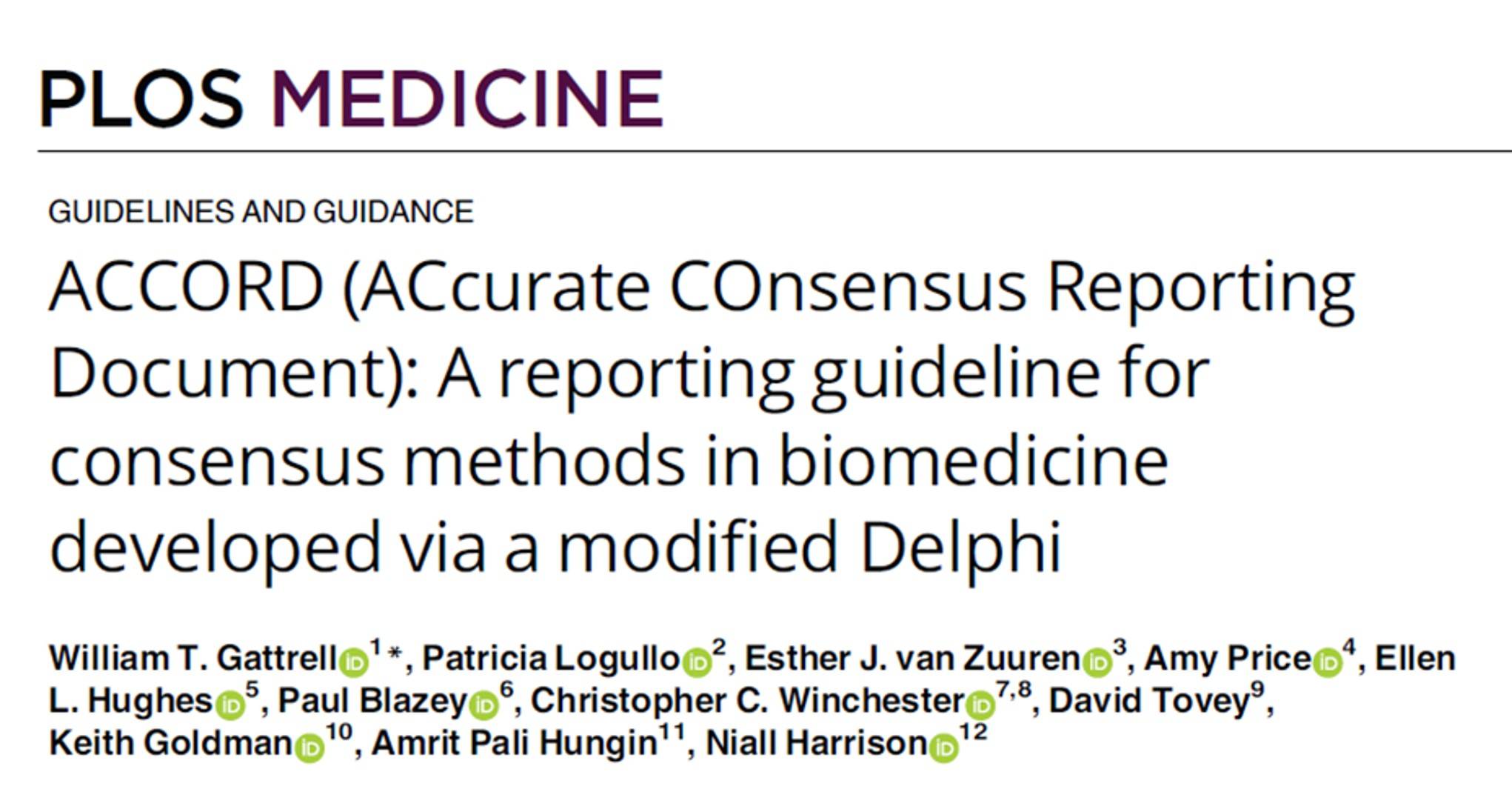
ACCORD, a new reporting guideline

February 15, 2024
In the field of biomedical research, consensus between different professionals is often sought when developing clinical guidelines. The new ACCORD (ACcurate COnsensus Reporting Document) reporting guideline will enable the scientific community, and in particular medical writing professionals, to report accurately, comprehensively and consistently on the methods used, as well as the results obtained, within the framework of a consensus.
Medical Writing Guidelines
In medical writing, a guideline is a simple, structured tool that should be used when writing manuscripts. The associated checklist verifies that the minimum information necessary has been included in the manuscript so that it can be understood by readers and the research can be replicated, used for clinical decision-making, and included in systematic reviews.
Conforming to guidelines provides a guarantee of quality and is often required by peer-reviewed journals.
There are many guidelines for medical writing, which are freely accessible on the EQUATOR (Enhancing the QUAlity and Transparency Of health Research) network website. Each guideline is specific to a type of study or document. For example, the CONSORT guidelines should be used to report randomized clinical studies, the STROBE guidelines for observational studies, the PRISMA guidelines for systematic reviews of the literature, and the SPIRIT guidelines for publication of clinical study protocols. The EQUATOR search tool allows you to find the most appropriate guideline, and, when available, any guideline extensions.
These guidelines are essential tools and are followed by each medical writer on our team to write manuscripts for publication in peer-reviewed journals.
The ACCORD Guideline
The ACCORD (ACcurate COnsensus Reporting Document) reporting guideline was recently published in the journal PLOS Medicine. Developed by an international steering committee recruited under the auspices of the ISMPP (International Society for Medical Publication Professionals), the ACCORD guideline responds to a real need in medical writing. Indeed, the development of clinical recommendations is often the result of a consensus between various professionals. This is particularly the case when there is limited or no evidence, such as in the context of rare diseases.
ACCORD provides medical writers, and more generally the medical scientific community, with a new framework for best practice for the publication of research reports involving consensus methods.
Moreover, it is the first tool applicable to all consensus methodologies, not just the DELPHI method, which is the best known and most widely used consensus methodology.
The ISMPP has set up a satisfaction survey to collect the opinions of users of the checklist of this new guideline.